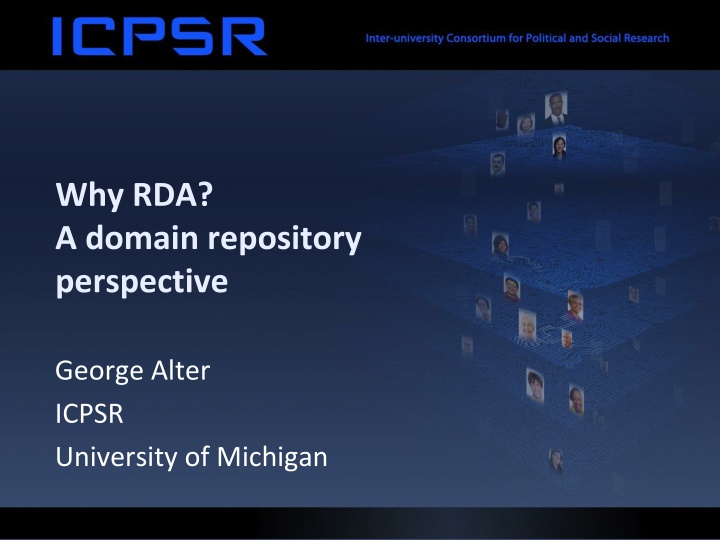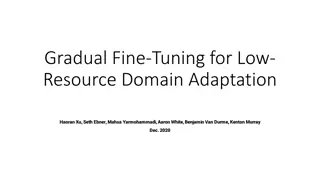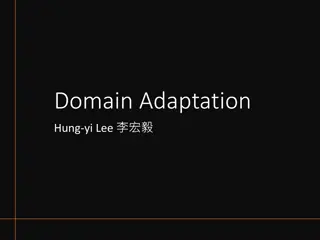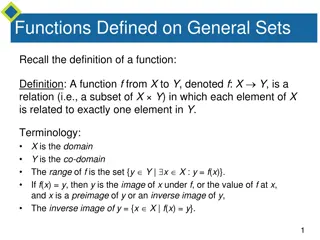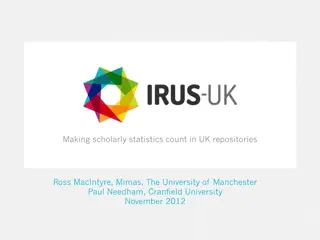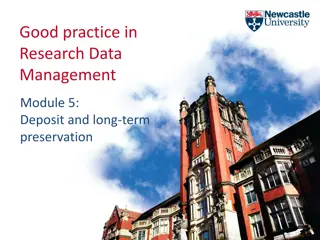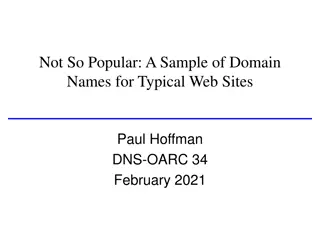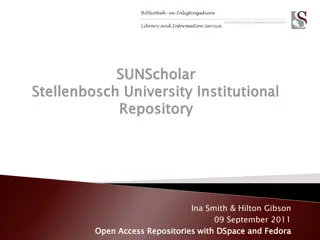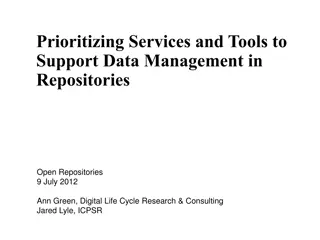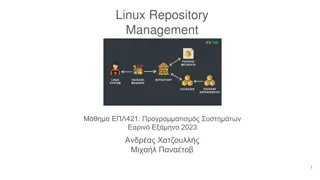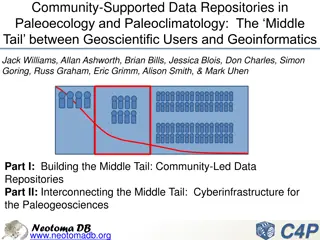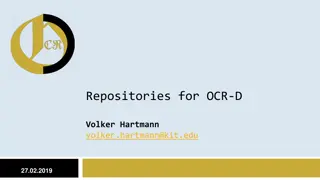Perspectives on Domain Repositories
Domain repositories play a crucial role in supporting scientific research by providing specialized expertise for understanding and utilizing data. This content explores the importance of domain repositories, their challenges, and how collaborative efforts like RDA can enhance their functions to facilitate knowledge creation and dissemination.
Uploaded on Feb 16, 2025 | 0 Views
Download Presentation

Please find below an Image/Link to download the presentation.
The content on the website is provided AS IS for your information and personal use only. It may not be sold, licensed, or shared on other websites without obtaining consent from the author.If you encounter any issues during the download, it is possible that the publisher has removed the file from their server.
You are allowed to download the files provided on this website for personal or commercial use, subject to the condition that they are used lawfully. All files are the property of their respective owners.
The content on the website is provided AS IS for your information and personal use only. It may not be sold, licensed, or shared on other websites without obtaining consent from the author.
E N D
Presentation Transcript
Why RDA? A domain repository perspective George Alter ICPSR University of Michigan
Background: Domain Repository meetings hosted by ICPSR Sustaining Domain Repositories for Digital Data, Ann Arbor, June 24-25, 2013 Integrating Domain Repositories into the National Data Infrastructure, Ann Arbor, November 20-21, 2014 Each meeting attended by >20 domain repositories Funding from the Alfred P. Sloan Foundation RDA Domain Repositories IG is an outcome
Why domain repositories? Scientific research is highly specialized. Discipline-specific expertise is needed to understand the content and use of data. Domain repositories interpret and advance the needs of their disciplines. Domain repositories mediate between their disciplines and the expanding fields of information science and data science.
What do Domain Repositories worry about? Developing their collections Promoting usage of their collections Sustainable funding Domain repositories provide a service. We want those services to be used. We believe/hope that services that are used will be funded.
RDAs value is not obvious Domain repository leaders come from the domains not from the information sciences Most scientists are happy with the way that they do their work Semantics, ontologies, etc. are not obviously useful Everyone hates creating metadata
How can RDA help? RDA cannot help repositories speak to their communities or their funders. RDA can help repositories perform their functions better.
Turning Data into Knowledge For data to produce science it must be Discoverable Accessible Meaningful Usable Trustworthy Persistent These are the roles of the Data Repository.
Roles are expressed in functions Data curation Metadata Standardization Quality assurance Discovery and distribution Discovery tools Access systems Data Use Agreements Preservation Multiple copies Stable formats Documentation All repository functions are built on standards. RDA can make standards: Consistent Effective Interoperable
Examples WG Data citation: Making Dynamic Data Citeable Citing data derived from electronic health records (EHR) Data Type Registries WG Converting question banks from social surveys into a variable registry
RDA and Domain Repositories RDA already has products and tools that will help domain repositories RDA must speak in language the repositories understand RDA must create events and venues that bring the repositories together on their own terms
THANK YOU! George Alter altergc@umich.edu
